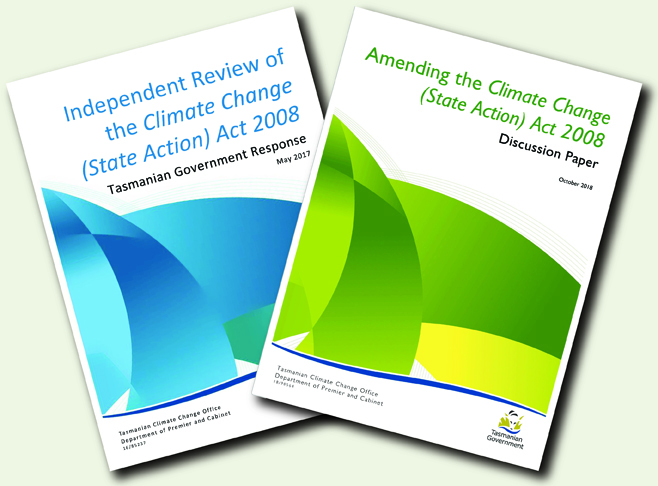Tasmania’s climate legislation needs some backbone.

In the endless argument over climate action the word most commonly bandied about is leadership. Many want to claim that mantle for themselves or their country, but what exactly is it? What does it mean to be a leader?
This kind of discussion crops up a lot in Antarctic circles, where every year people come together to form a station community. One member of the station group is selected as leader, but in this hazardous environment everyone is expected to pull together and look out for others.
When putting together a history of Australians in Antarctica, historian Tim Bowden asked a veteran officer-in-charge for the secret of leadership. Simple, was the response. You sit around, work out where the group seems to be heading, then you get in front of them and say “Follow me”.
There’s some cautionary advice here for any leader: don’t try to impose your own values on your people and make sure you remain firmly rooted in their values and internal dynamics. And don’t think that wherever your people think they’re headed, you know better. You don’t.
A succession of recent opinion polls have shown Australians focusing their attention on greenhouse warming, determining that a lot of change needs to happen, and quickly. They have looked at what their governments are offering and found it wanting.
The highly-respected Lowy Poll shows voters’ level of concern steadily rising for each of the past six years, to the point where nearly 60 per cent of all voters, and 70 per cent of younger ones, now see it as “a serious and pressing problem” calling for a significant allocation of resources.
I am not suggesting that governments adjust policies to fit public opinion polls. But governments here and in Canberra have long held that climate change is not a first-order issue. When a steadily rising proportion of voters say that it is, doesn’t that say something?
The leadership principle described above says that you will not be an effective leader unless you address the beliefs and concerns of the people you purport to lead. That doesn’t mean you have to share their priorities, but you are obliged to explain why you don’t.
Tasmania’s Climate Change (State Action) Act of 2008 requires an independent review every four years. In 2016 the Hodgman government commissioned the US-based consultancy firm Jacobs to review performance in achieving the Act’s objectives.
The Jacobs review concluded that the act should include an “aspirational” emissions reduction target of zero net emissions by 2050, that agencies be required to consider climate change in decision making, and that governments be compelled to have a climate change action plan.
The government accepted the aim of zero net emissions by 2050, which seems ambitious, but not if a low level of forest harvesting is factored in. A moribund forest industry is the reason Tasmania has already easily surpassed its legislated target of 60 per cent below 1990 levels by 2050.
But the government blinked on compulsory climate action plans and compelling agencies to factor climate change into decision-making. It proposes a discussion as to how the latter might happen, and says a compulsory plan isn’t needed because it already has its “Climate Action 21” plan.
We’re now at the pointy end of this drawn out process. The government has released its thoughts about changes needed for our climate legislation, which I think can fairly be described as minimal. But environment minister Elise Archer has allowed scope for plenty of public discussion.
We know voters want governments at all levels to strengthen their commitments, especially after this month’s UN report described climate change as a global crisis. But not being expert in the processes, it’s difficult for ordinary people to tackle government on the details.
What they do know is that given all we have learned about climate change since the legislation first passed 10 years ago, fine-tuning is not enough. Nor is it enough to have the process so firmly controlled by government. We need the full engagement of all parties and both houses of parliament.
We also need the parliament, the government and all its agencies, down to the last individual, to lead by example, and that will not happen unless legislation compels them to incorporate climate change into decision making.
Among significant future decisions facing Tasmanians is investing in fossil-fuelled transport and machinery – items they will expect to use for many years but which climate imperatives may render valueless. We need laws that anticipate and account for such potentially large economic disruptions.
The government is offering information sessions on its legislative proposals this week in Burnie (tomorrow at 2pm, Cradle Coast Offices), Launceston (Thursday, 10am, Sebel Hotel), and Hobart (Friday, 10am, Hobart Function and Conference Centre, Franklin Wharf).
If any of this concerns you, go along and have your say. Help the government see that its legislation must reflect the fact that climate change is now a first-order issue. Help it to become a real leader.
